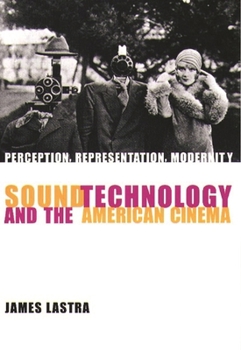Sound Technology and the American Cinema: Perception, Representation, Modernity
(Part of the Film and Culture Series Series)
Representational technologies including photography, phonography, and the cinema have helped define modernity itself. Since the nineteenth century, these technologies have challenged our trust of sensory perception, given the ephemeral unprecedented parity with the eternal, and created profound temporal and spatial displacements. But current approaches to representational and cultural history often neglect to examine these technologies. James Lastra...
Format:Paperback
Language:English
ISBN:0231115172
ISBN13:9780231115179
Release Date:August 2000
Publisher:Columbia University Press
Length:288 Pages
Weight:0.80 lbs.
Dimensions:0.6" x 6.0" x 9.0"
Customer Reviews
1 rating
Sound and representation
Published by Thriftbooks.com User , 19 years ago
This is a very well researched, well written, lucid account of how sound came to be born into cinema and how it evolved the way it did to modern sound practice. The timeline Lastra presents is crystal clear and it reveals why sound and picture had an acrimonious relationship, and the manner in which sound practice evolved. Lastra tackles some very difficult notions of representation, including questions of 'truth', sound perspective, space and ambience and much more. Several scholars have dealt with this in one way or another, but Lastra does so with confidence and courage, cutting through to core issues of perceptual aesthetics. For example, from his introduction (regarding photography): "Nearly every contemporary newspaper image is digitized, and many are manipulated for purposes of clarity or rhetoric. We have not, however, consequently given up on the idea of photographic reliability since, in spite of our doubts about the medium, we still believe in the institution of journalism and the practice of journalists, which guarantee our faith far more than the simularcra produced by the computer. So, while it is all well and good to argue that every photograph is ideological to its core ... such arguments only go halfway. Indeed they lead to a kind of cynicism. No one today can be unaware that photography can be faked, yet that fact alone does not rule out the possibility that under some conditions a photograph might, indeed, tell the truth. And that is a possibility worth defending." I found this statement refreshing, when too much writing on aesthetics gets bogged down by unanswerable questions of hegemony, ideology and the like. Sometimes a cigar is just a cigar... or, a door slam is just a door slam. It also helped defend my thesis, for which I'm grateful. :)




